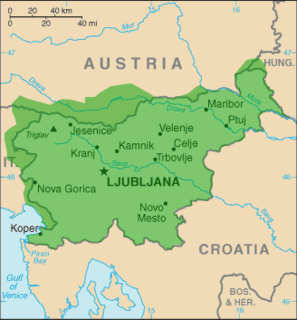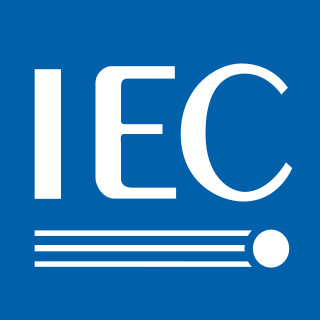
The International Electrotechnical Commission is an international standards organization that prepares and publishes International Standards for all electrical, electronic and related technologies – collectively known as "electrotechnology". IEC standards cover a vast range of technologies from power generation, transmission and distribution to home appliances and office equipment, semiconductors, fibre optics, batteries, solar energy, nanotechnology and marine energy as well as many others. The IEC also manages three global conformity assessment systems that certify whether equipment, system or components conform to its International Standards.

The International Commission on Illumination is the international authority on light, illumination, colour, and colour spaces. It was established in 1913 as a successor to the Commission Internationale de Photométrie and is today based in Vienna, Austria. The President from 2015 is Yoshihiro Ohno from the US.
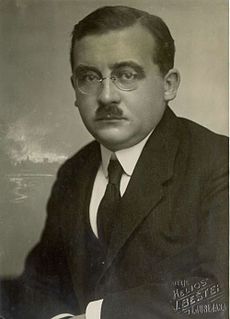
Milan Vidmar was a Slovene electrical engineer, chess Grandmaster, chess theorist, chess arbiter, philosopher, and writer. He was among the top dozen chess players in the world from 1910 to 1930. He was a specialist in power transformers and transmission of electric current.

Stepan Prokofyevich Timoshenko, was a Ukrainian-born Russian and, later, an American engineer and academician. He is considered to be the father of modern engineering mechanics. An inventor and one of the pioneering mechanical engineers at the St. Petersburg Polytechnic University. A founding member of the Ukrainian Academy of Sciences, Timoshenko wrote seminal works in the areas of engineering mechanics, elasticity and strength of materials, many of which are still widely used today. Having started his scientific career in the Russian Empire, Timoshenko emigrated to Yugoslavia during the Russian Civil War and then to the United States.
In physics, the weber is the SI derived unit of magnetic flux. A flux density of one Wb/m2 is one tesla.

IEC 60309 is an international standard from the International Electrotechnical Commission (IEC) for "plugs, socket-outlets and couplers for industrial purposes". The maximum voltage allowed by the standard is 1000 V DC or AC; the maximum current, 800 A; and the maximum frequency, 500 Hz. The ambient temperature range is −25 °C to 40 °C.
Mains electricity by country includes a list of countries and territories, with the plugs, voltages and frequencies they commonly use for providing electrical power to appliances, equipment, and lighting typically found in homes and offices. Some countries have more than one voltage available. For example, in North America most sockets are attached to a 120 V supply, but there is a 240 V supply available for large appliances. Often different sockets are mandated for different voltage or current levels.

Sergey Alexeyevich Lebedev was a Russian-born Ukrainian Soviet scientist in the fields of electrical engineering and computer science, and designer of the first Soviet computers.
The History of the Second World War is the official history of the British contribution to the Second World War and was published by Her Majesty's Stationery Office (HMSO). The immense project was sub-divided into areas to ease publication, United Kingdom Military Series, the United Kingdom Civil Series for the civilian war effort; the Foreign Policy series, the Intelligence series and the Medical series are eponymous. Other volumes not under the aegis of the series but published by HMSO may be read as adjuncts, covering matters not considered in great detail or at all, in one case, in the main series. Further volumes, published after the privatisation of HMSO or in the series about the Special Operations Executive, are also useful.
IEC 60364Electrical Installations for Buildings is the International Electrotechnical Commission's international standard on electrical installations of buildings. This standard is an attempt to harmonize national wiring standards in an IEC standard and is published in the European Union by CENELEC as "HD 60364". The latest versions of many European wiring regulations follow the section structure of IEC 60364 very closely, but contain additional language to cater for historic national practice and to simplify field use and determination of compliance by electrical tradesmen and inspectors. National codes and site guides are meant to attain the common objectives of IEC 60364, and provide rules in a form that allows for guidance of persons installing and inspecting electrical systems.
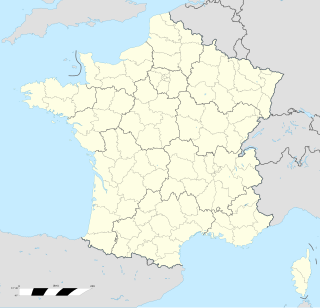
Lunéville-Croismare Airport is an airport in France, located approximately 3 km east-southeast of Lunéville in the Meurthe-et-Moselle department. The airport is used for general aviation, with no commercial airline service.
Miguel Manzano was a Mexican actor during the Golden Age of Mexican cinema, winning an Ariel Award in 1985, for best supporting actor for the film Las glorias del gran Púas, where he played the role of Ruben Olivares' boxing trainer..
Ivan Seljak, nom de guerre Čopič was a Slovene painter and illustrator.
Janez Vidic was a Slovene painter and illustrator, best known for his oil paintings of landscapes and people as well as his murals.

Jože Pahor was a Slovene writer, playwright, editor and journalist.
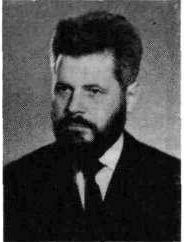
France Križanič was a Slovene mathematician, author of numerous books and textbooks on mathematics. He was professor of mathematical analysis at the Faculty of Mathematics and Physics of the University of Ljubljana.
Miroslav Zei was a Slovene biologist, specialist in marine biology, oceanography and ichthyology.
Božo Škerlj was a Slovene anthropologist, author of eleven books and over 200 scientific articles published in journals at home and abroad.
O'zelektroapparat-Electroshield - Central Asia's largest producer of electrotechnical, facilitating the development and production in the field of energy management solutions as well as comprehensive energy efficient solutions for the energy and infrastructure, industrial plants, facilities civil and residential construction.

Alan Howard was an American engineer, General Manager of the Gas Turbine Department at General Electric Co., and inventor. He was known as "one of the world's leading authorities on the development and application of gas turbines," and recipient of the 1964 ASME Medal.

